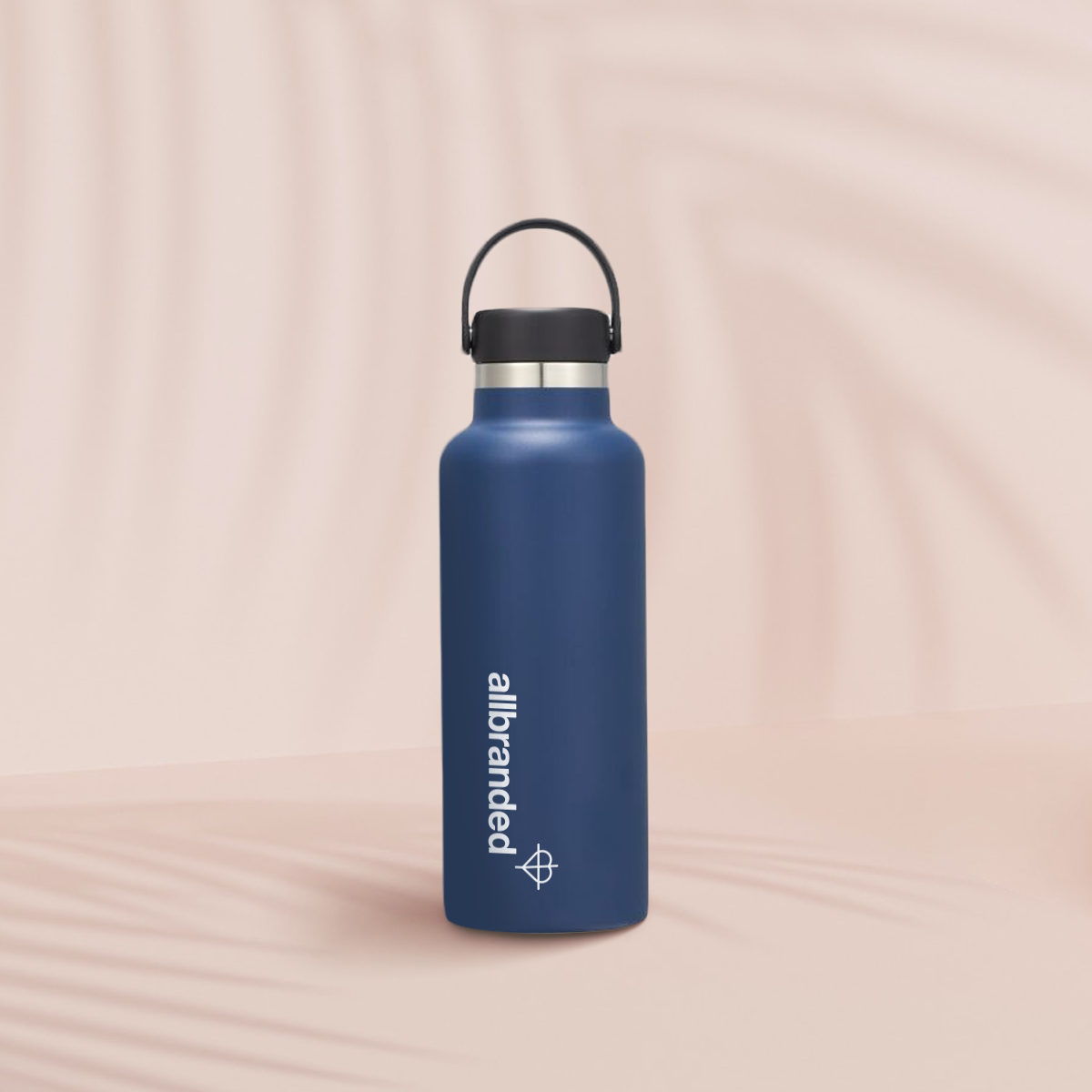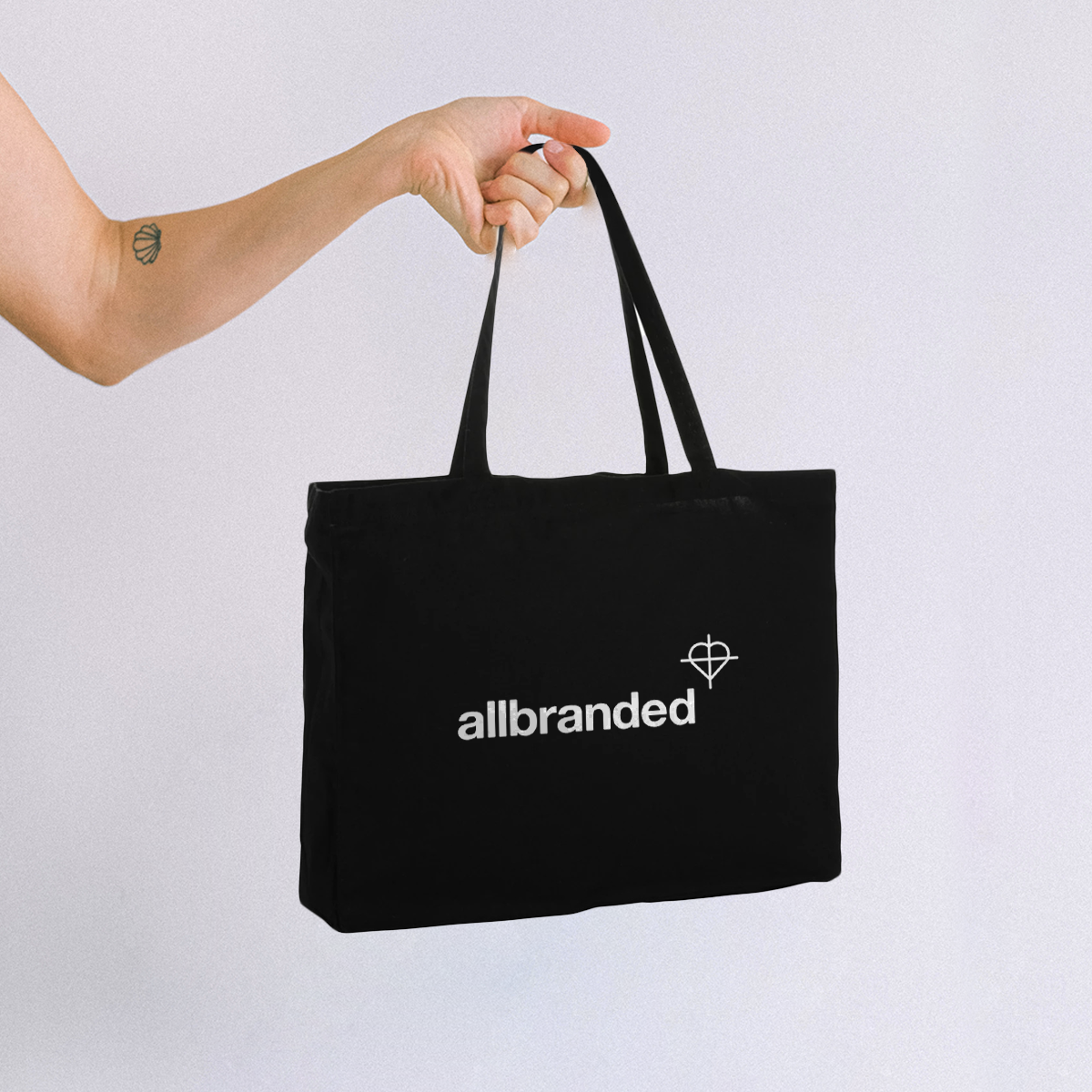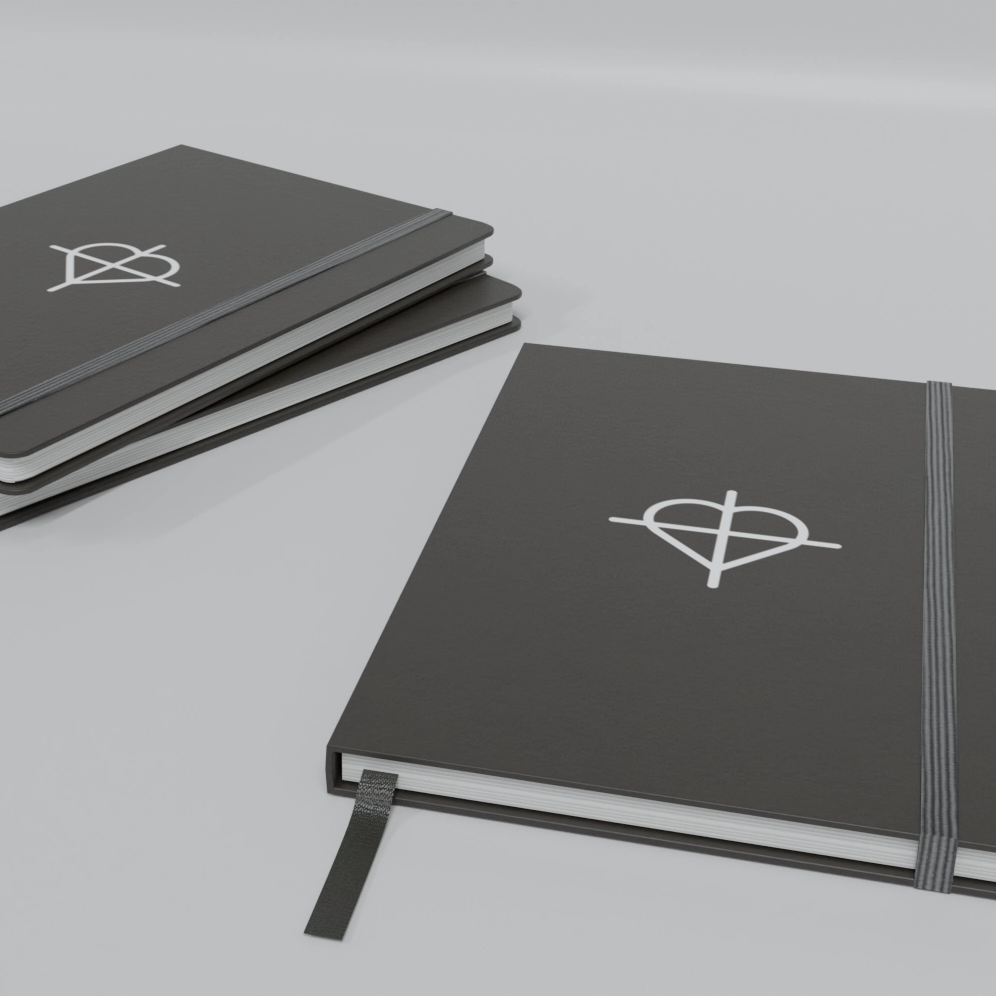allbranded Glossary
Similar to any other field, the realm of promotional products possesses its unique set of technical jargon. This extensive guide provides you with information ranging from various materials to essential printing techniques. Explore an alphabetical compilation of significant terms concerning promotional products.
Advertising print
Advertising printing is the design and printing of promotional items, for example with an individual advertising message, a company logo or a artwork that is used for advertising purposes.
MoreArtwork
In a business context, artwork refers to creative visual or auditory expressions produced by artists for commercial purposes such as being imprinted on promotional products. It can be commissioned by businesses to convey specific messages, evoke desired emotions, or attract and engage customers. Artwork in a business setting can reflect the company's values, establish a unique visual identity, and differentiate it from competitors.
MoreCMYK vs. RGB
The selection of appropriate colours holds significant importance during the culmination of print data. Within the realm of image processing, two distinct colour models emerge: CMYK (cyan, magenta, yellow, black) and RGB (red, green, blue). Employed in the process of 4-colour printing, CMYK utilises the standardised colours Cyan, Magenta, Yellow, and Key (black) to effectively generate vibrant and captivating coloured images.
MoreColour profile
Whether a smartphone, monitor, printer or digital camera - technical devices display colours individually. Depending on the device class, colour spaces are individually registered and ultimately displayed.
MoreCounter-cyclical advertising
Anti-cyclical advertising are advertising campaigns that are executed in times of decreasing revenues when the company is struggling to survive. The goal is to gain new customers, retain old ones and generate attention for the company. Especially promotional items are recommendable during such times. However, anti-cyclical does not only mean doing advertising during bad times, but also times with low competitive pressure. The same goes for a reduction of advertising expenses during times when competitive pressure is high. The application of anti-cyclical advertising results in the lowest scatter losses, and it achieves exactly what is counteracting a decreases in sales: Increase sympathy, a stronger image, customer loyalty and a higher recognition value.
Create a print file
In order to get the best print result on your promotional item that will satisfy your requirements, you need to submit an optimal print file to the online store or printer of your choice. Let us walk you through the best way to do that.
MoreDigital printing
Digital print means that the print image is directly transferred from the computer to the printer. Similar to a laser printer, this is an electrographic printing system. The advantage of this system is the cheap and fast production of large quantities. This technique is usually applied for printing catalogues.
MoreEmbossing
Embossing or imprint is a manufacturing technique where engraved and heated rollers use pressing power to emboss a certain logo or message on different printing stocks. Materials are often precious metals like gold, silver and bronze. They contain special persons, places or objects that are irreversible.
MoreEmbroidery
Embroidery is a printing technique where embroidery threads are used to shape letterings or motives onto a printing stock, either by hand or with a machine. The most common application is for textiles, but other objects like car seats and terry products are also popularly used for embroidery. There are many different embroidery techniques, e.g. cross-stitching, goldwork and the kilim.
MoreFinishing technology
Finishing technique is a generic term for different printing methods that are used to print on advertising media. These include transfer printing, screen printing or foil printing. Depending on the advertising objective and material, different printing techniques can be applied.
MoreFlexographic printing
Flexographic printing is a high-pressure printing method and is similar to letterpress. The roll rotation printing process uses flexible printing plate made of rubber or photopolymer. The advantage of flexo printing is the simple and cheap production of the printing plates. It is especially well suited for printing packaging, labels, or other promotional products made of paper, cardboard, or plastic.
MoreFlock printing
Flocking is a printing method where textile fibres are applied to a fabric that is coated with a glue. The fibres are worked into the glue through an electrostatic flied, creating an even and durable surface. Especially large letterings, logos and motives are suitable for flocking.
MoreFont paths
Fonts are always embedded when a PDF file is exported. This prevents problems arising during the final print and the print result from being inferior.
MoreLaser engraving
Laser engraving involves the cutting of letters and designs into various metals such as silver, steel, copper, glass, and other solid materials. Engravings are commonly employed by advertisers to add a personalised element to promotional items. By offering corporate gifts, companies foster loyalty among their customers and business partners, establishing a personal connection. Additionally, they demonstrate appreciation and enhance the likelihood of word-of-mouth promotion.
MoreMetal decorating
Metal printing is an offset printing technique for printing on cans and other metal packaging. In order to prepare the slick aluminium surface for the paint application, it is usually treated with a special coating prior to the print. After the print, the metal is dried in a chain run oven to achieve a lasting colour effect. This method is applied for printing on beer cans, for example.
Offline marketing
Offline marketing refers to all advertising strategies and marketing campaigns that are not carried out directly through the internet. It encompasses various forms of traditional media, such as print materials like posters, flyers, as well as advertisements on radio and television. Additionally, promotional products are also considered part of offline marketing. The aim of offline marketing is to reach both existing and potential customers who may not actively seek out products or services online. Instead, these individuals are targeted through offline marketing initiatives and may subsequently search for the product, service, or brand on the internet. The integration of offline and online marketing is particularly effective. By promoting new products or brands offline, interest and attention can be generated for the online channel.
Offset printing
Offset printing belongs to the category of indirect flat printing processes and is often used for print media like books and magazines, but also for advertising means and packaging. In this process, there is no direct contact between the printing plate and the paper. The colour is first applied to a blanket cylinder and then to the paper. This results in lasting effect for the printing plate, which can be used for several stocks and always results in the same quality. Prior to the print, four printing plates are created for the CMYK colours. Later, they are filled with paint or stay clear.
MoreOutdoor advertising
Outdoor advertising, also known as out-of-home advertising (OOH), is the promotion of products, services, or brands through media displayed in public spaces. It includes billboards, posters, transit ads, and digital signage strategically placed to reach a wide audience and create brand awareness.
MorePad printing
Pad printing is a printing technique that involves transferring ink from a specially designed plate to a three-dimensional object using a soft silicone pad. It is commonly used for printing on irregular or curved surfaces, such as promotional products, toys, electronic devices, and industrial components. The pad, made of silicone, picks up ink from the etched plate and transfers it onto the object by gently pressing against it. This method allows for precise and detailed printing on various materials, including plastics, metals, ceramics, and glass. Pad printing is often chosen for its versatility and ability to create high-quality prints on challenging surfaces.
MorePantone matching system
The Pantone Matching System (PMS) is an internationally accepted colour matching system. The system contains 1755 special colours that cannot be realised with four-colour-printing. Moreover, it is composed of 14 basic colours. They result in all other colours when being blended in different portions. On one side, it is used to guarantee that the colour turns out as desired on different printing stocks. On the other side, it facilitates communication between everyone involved, as Pantone colour codes be objectively and easily exchanged globally.
MorePrint preview
Print preview is the process of creating a manual or digital illustration of the desired print design. Its main purpose is to ensure accurate fulfilment of the customer's requirements. It is generated before placing the print order to prevent misunderstandings and excessive expenses. The actual printing process commences only upon approval of the previewed design.
Relief printing
Relief printing or relief embossing is a printing technique that accentuates lines, letterings and ornaments three-dimensionally. This printing process can be performed as blind or hot foil embossing. All kinds of printing stocks can be accentuated with relief embossing. Typical examples are book covers and greeting cards – but also leather, linen and cartons.
MoreSales letter
The sales letter explains in a comprehensible way how to successfully market products or services and encourage your target group to interact with your consumer base and clientele.
MoreSample orders
A sample order is a great opportunity for you to order the product to test the quality before you order a larger amount. Sample orders are not available for branding with your logo. These sample orders always have a £10 shipping cost. Once you place a larger order from this sample, your sample order product will be refunded.
MoreScreen printing
Screen printing is one of the most common printing techniques in the advertising product industry. Colour is pressed on the material through a fine fabric. The template is close at the areas that are not to be printed, so that no colour can reach the printing surface. The advantage of screen printing lies in the variety of print colours and fabrics in various levels of refinement that can be used. This leads to a high level of colour fastness and picture genuineness. Screen printing is an affordable printing technique and allows to apply colour effects to many different materials and shapes.
MoreSpecial production
Special production are custom-made promotional products, giveaways and advertising gifts that are produced individually according to the wishes of the customer. The client can choose material, colour and use of advertising and design the products completely in his own corporate design. The creative possibilities are endless. The handling time of such products is a bit longer than for items on stock. Moreover, custom-made products often have a minimum order quantity. For more information, feel free to ask our sales department via phone or email.
MoreTransfer printing
Transfer printing, also known as sublimation printing, is a method used primarily for branding textiles with desired designs by utilizsng pre-printed transfer foil. Through the application of a thermo transfer press and the application of heat, the foil is fused with the textile. This 4c digital printing technique enables the realisation of multi-coloured designs in high-resolution photo quality, all in a single step. Additionally, this cost-effective process ensures exceptional quality results. The printed design is resistant to UV damage and offers excellent washability, making it highly durable.
MoreVector graphics
Vector graphics are made up of geometrically defined basic elements – other than pixel graphics, which consist of single small points. Therefore, they can rather be understood as a collection of mathematic formulas. The single vectors contain lines, curves, circles or polygons, which result in a complex graphic. These so-called primitives only need little information. Therefore, vector graphics are well suited for printing geometric designs and letterings. Another advantage is the small memory requirement as compared to pixel graphics and that they can be scaled up and down without loss of quality.
More



.png)
.png)
.png)